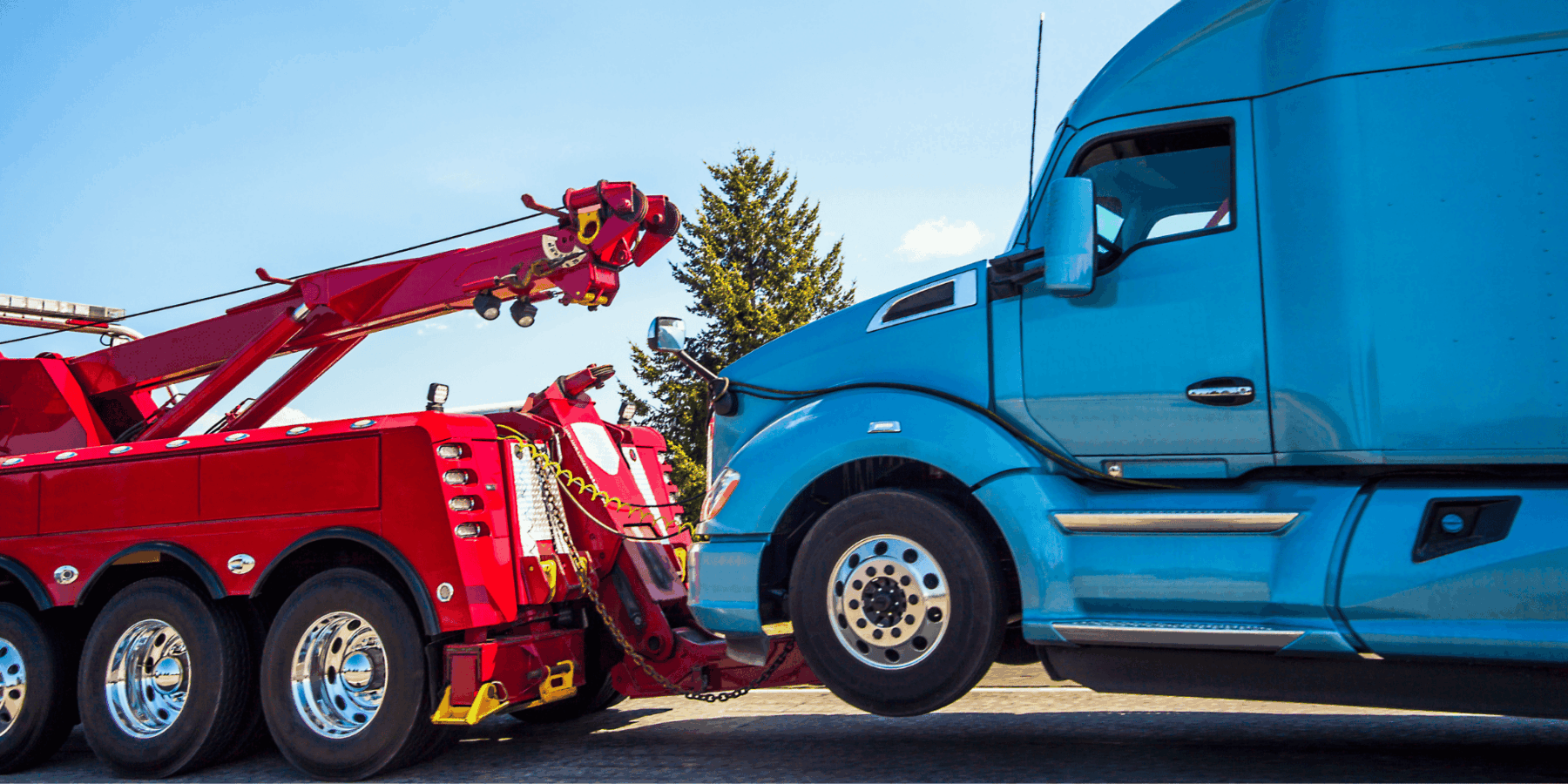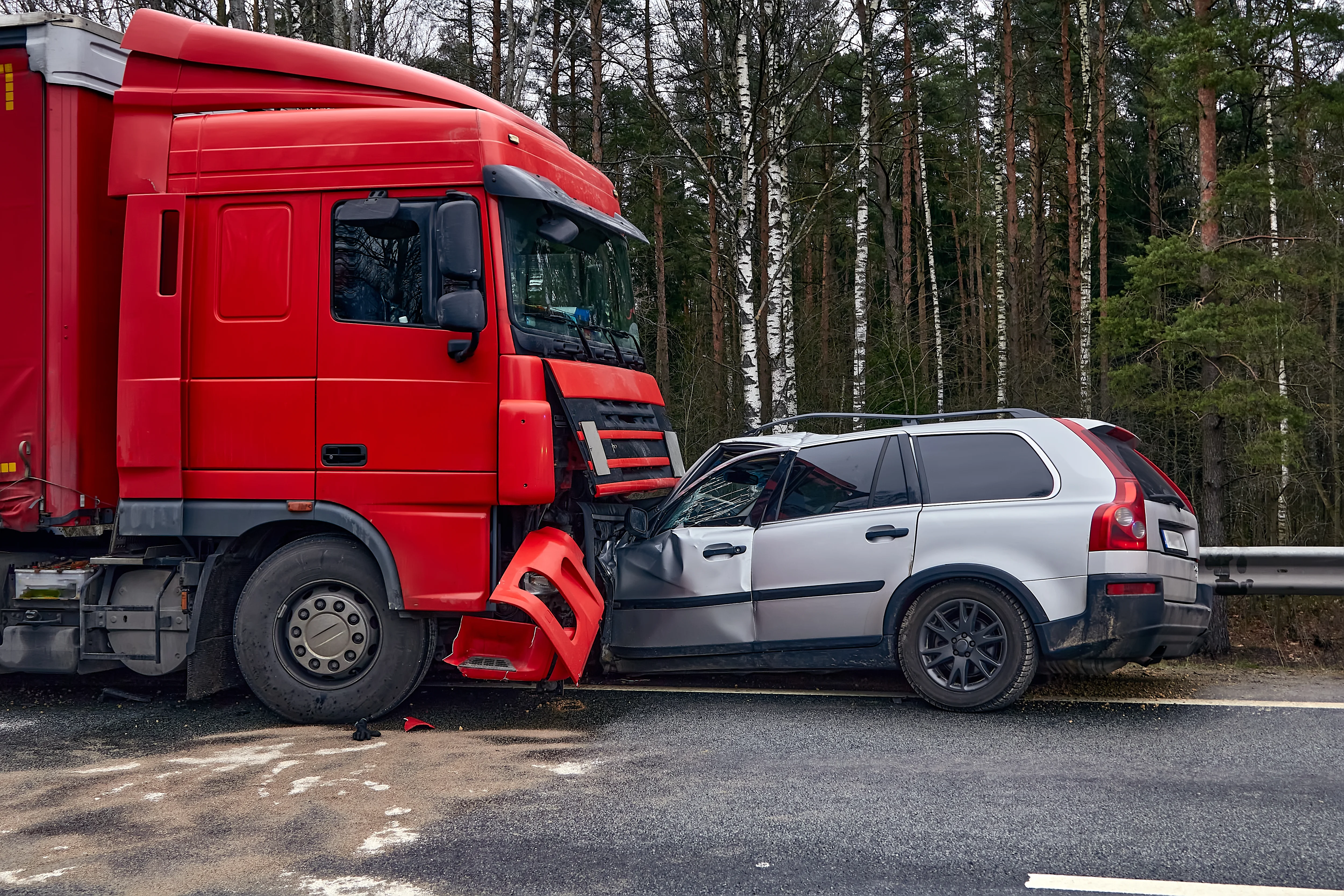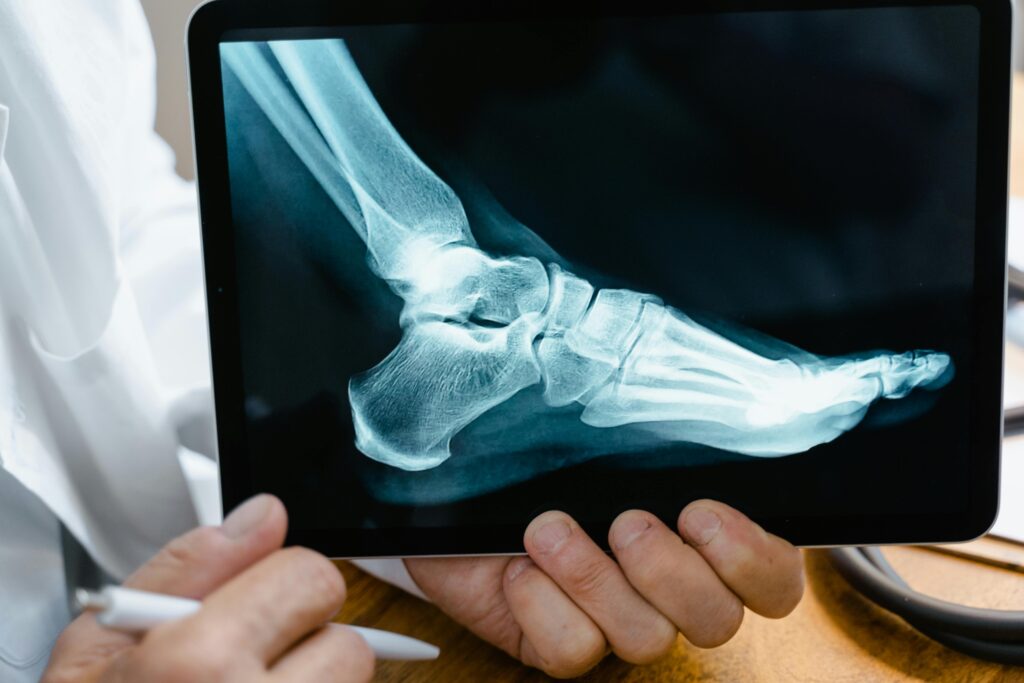Truck Accident Lawyers Protecting Colorado’s Roads and Communities
Giant commercial rigs dominate Colorado’s highways, from the steep grades of Loveland Pass to the high-speed interstates of I-25. But when tragedy hits, these giants can wreak havoc. At Levine Law, our Colorado semi and 18-wheeler truck accident lawyers provide forceful representation to those injured in a semi, 18-wheeler, or other commercial vehicle accidents.
According to the Federal Motor Carrier Safety Administration (FMCSA), thousands of people are injured in big rig crashes each year, with a steep rise in accidents on mountain states like Colorado. These types of crashes frequently happen on highways like I-70, U.S. 285, and Highway 50, where weather, speed, and weight all increase risk.
Our lawyers have recovered over $2 billion for injury victims by developing solid claims with evidence and acting quickly. We understand how to make the trucking companies pay up under federal and Colorado law. Whether your accident was in downtown Denver or a windy canyon road near Glenwood Springs, we battle to get your voice heard and your loss paid.
With Colorado’s rugged landscape and unstable road conditions, truck accident injury claims require accuracy, preparation, and pressure. That’s where Levine Law steps in.
Why Colorado Truck Accidents Are Especially Severe Across the Front Range and Beyond
Truck crashes in Colorado cause far more destruction than typical car accidents. From jackknifes in Glenwood Canyon to multi-vehicle pileups near Colorado Springs, these collisions often result in catastrophic injuries, significant property damage, and long-lasting trauma. The blend of mountainous terrain, unpredictable weather, and heavy freight traffic makes Colorado one of the more dangerous states for trucking incidents.
According to the U.S. Department of Transportation, fatal truck crashes are increasingly concentrated in rural and mountainous regions like those in Colorado. At Levine Law, we use this knowledge and extensive legal strategy to help clients recover every dollar they are owed after serious truck collisions.
Unique Hazards Created by Colorado’s Mountain Road System
High-elevation roads in Colorado are not just scenic routes. They are among the most treacherous for large trucks, especially those carrying hazardous materials or oversized loads. Narrow shoulders, sharp turns, and runaway ramps appear frequently across passes like Red Mountain and Wolf Creek.
Mountain Grades Cause Mechanical Failures and Loss of Control
On long downhill grades, even well-maintained trucks are vulnerable to brake overheating and mechanical failure. When maintenance is neglected, the consequences become even more dire. These scenarios are common along sections of I-70, including the descent into Silverthorne.
The National Transportation Safety Board (NTSB) has investigated numerous incidents involving brake failure and driver mismanagement in Colorado’s high-altitude areas. Our legal team frequently uses these reports to establish a pattern of negligence and hold all responsible parties liable.
Winding Roads Increase Rollover and Jackknife Risks
Colorado’s back roads and mountain highways feature some of the most challenging curves in the western United States. Truck drivers unfamiliar with these areas often misjudge safe speeds, leading to rollovers and jackknife crashes.
Truck accidents along State Highway 133 or Highway 82 near Aspen frequently involve such maneuvers. These types of crashes often shut down traffic for hours and cause extensive injuries to those in nearby vehicles.
How Sudden Weather Shifts Turn Colorado Roads Into Danger Zones
From sudden whiteouts to unexpected summer hailstorms, Colorado’s climate is anything but predictable. Truck drivers who fail to prepare for these conditions put everyone else on the road at risk. Unfortunately, many crashes happen simply because the driver or carrier did not adjust speed or braking distances to match road conditions.
Snow and Ice Create Immediate Hazards for Large Vehicles
Snow-packed roads require much longer stopping distances. For an 80,000-pound truck, this can mean several hundred feet more than a car needs to stop. Crashes on U.S. 285 in South Park or on Highway 6 in Eagle County frequently involve trucks that slid through intersections or veered off steep embankments.
The Colorado Avalanche Information Center (CAIC) also warns that certain regions, especially near Berthoud Pass and Independence Pass, are prone to sudden weather-related closures. These alerts are often ignored by carriers trying to meet tight deadlines, increasing the odds of catastrophic failure.
Wind and Fog on the Eastern Plains Affect Visibility and Control
Even outside the mountains, Colorado presents weather dangers. On the eastern plains and in areas like Weld County, high winds and dense fog reduce visibility dramatically. Truck drivers may not see stopped traffic or obstacles until it is too late to slow down safely.
These conditions often result in high-speed rear-end collisions or swerving accidents that send semis into oncoming lanes. Local news sources such as CBS Colorado regularly report on closures due to low visibility crashes involving trucks.
Truck Size and Weight Intensify Impact and Injury Severity
When a commercial truck collides with a passenger vehicle, the results are typically devastating. The immense mass and velocity behind a loaded big rig cause crushing injuries, totaled vehicles, and widespread scene damage. Unlike collisions between two cars, these are rarely survivable at highway speeds without lasting physical consequences.
Most Fatalities Involve Passenger Vehicle Occupants
The Insurance Institute for Highway Safety (IIHS) confirms that over 70 percent of fatalities in truck crashes are the occupants of smaller vehicles. This reflects the immense force and lack of impact protection during such accidents.
Victims frequently suffer spinal fractures, traumatic brain injuries, and internal bleeding. These injuries demand long-term care, often leaving victims unable to work or live independently. At Levine Law, we work tirelessly to ensure your recovery includes full compensation for current and future medical needs.
Hazardous Cargo Creates Secondary Dangers
Many trucks in Colorado carry hazardous or flammable materials. When a crash occurs, these substances can leak or ignite, triggering secondary disasters. Fires, chemical burns, and toxic inhalation injuries are all possibilities in crashes involving tanker trucks or freight haulers.
State and federal regulations require rigorous labeling and transport methods for such cargo, but violations remain common. Our attorneys investigate manifests, black box data, and shipping documentation to identify violations and pursue accountability from all involved parties.
Local Roads and Highways Known for Frequent Truck Crashes
While interstate highways like I-25 and I-70 are high-traffic corridors, many severe truck accidents occur on local roads that are poorly lit, inadequately maintained, or congested. These roads present specific challenges that require heightened caution from truck drivers.
Dangerous Corridors Include U.S. 50 and Highway 85
U.S. Route 50, which runs from Pueblo to Grand Junction, is notorious for high-speed freight traffic and limited visibility. Similarly, Highway 85 through Brighton and Greeley sees frequent truck-related incidents due to narrow lanes and busy intersections.
Crash data from the Colorado State Patrol shows a pattern of repeat collisions in these corridors. Our law firm tracks this data to build localized arguments that help juries and insurers understand the scope of risk where your crash occurred.
City Intersections and Construction Zones Heighten Risk
Urban areas like Aurora, Denver, and Fort Collins often host a dangerous mix of commercial trucks and dense local traffic. Construction zones, detours, and aggressive merging create situations where serious crashes occur at low to moderate speeds.
Injuries in these environments may not seem extreme at first, but soft tissue damage, concussions, and internal trauma often surface in the hours or days that follow. We help clients document these injuries and pursue fair compensation before the evidence fades.
What Causes Colorado Truck Accidents on Highways and Local Roads
Truck accidents in Colorado rarely happen without warning signs. In fact, most involve preventable errors such as careless driving, poor training, or mechanical failures. These wrecks frequently occur along high-traffic corridors like Interstate 70, Interstate 25, and U.S. Route 160. But the root causes often begin long before the crash. At Levine Law, we uncover the full story behind each collision to hold every liable party responsible.
According to the Federal Motor Carrier Safety Administration (FMCSA), more than 87 percent of truck crashes nationwide result from human error or equipment failure. When these issues play out on Colorado’s complex roadways, the consequences are often devastating. Our team investigates every angle, from freight company practices to driver habits and highway conditions.
Fatigued Driving Puts Colorado Families at Risk Every Day
Truck drivers often operate under intense pressure. Tight delivery windows and long-distance routes lead many to drive far beyond safe limits. Despite federal rules requiring rest breaks, fatigue remains a leading cause of Colorado truck crashes, especially overnight and in rural areas.
Long Hours and Lack of Sleep Lead to Deadly Mistakes
On highways like U.S. Route 287 or I-76 near Fort Morgan, drivers may fall asleep behind the wheel or experience delayed reactions. These moments can cause rear-end collisions, lane departures, or rollover accidents. Fatigue affects judgment, focus, and reflexes, placing every nearby vehicle in danger.
A study published by the National Library of Medicine shows that driving while sleep-deprived can impair performance as much as alcohol. At Levine Law, we analyze driver logbooks, GPS records, and dashcam footage to prove when exhaustion played a role.
Distracted Driving by Truckers Results in Catastrophic Wrecks
Multitasking behind the wheel is never safe. Yet many truck drivers use phones, GPS systems, or onboard devices while operating a rig. This behavior is especially dangerous on fast-moving routes like Highway 93 near Golden or U.S. Route 36 between Boulder and Denver.
Devices and Inattention Make Trucks Into Moving Hazards
A loaded truck can travel the length of a football field in just five seconds at highway speeds. If a driver is looking at a screen instead of the road, disaster can strike instantly. Side-swipe crashes, missed stop signs, and wrong-lane turns often result from simple inattention.
The Centers for Disease Control and Prevention (CDC) has warned about the rising dangers of distracted driving in commercial fleets. Our team uses phone records, onboard tracking data, and witness testimony to demonstrate when a driver failed to keep their eyes on the road.
Speeding and Aggressive Driving Lead to High-Impact Collisions
Truck drivers operating at excessive speeds cannot stop quickly or maintain safe control. This risk increases dramatically on Colorado’s mountain highways or during icy conditions. Speeding remains one of the top contributors to deadly crashes in counties like Jefferson, El Paso, and Mesa.
Reduced Control and Increased Force Make Speed Deadly
Excessive speed limits a truck’s ability to react to sudden changes. It also amplifies the damage when collisions occur. Highway 160 near Pagosa Springs and I-70 through the Glenwood Canyon are common sites of speed-related wrecks.
Research by the National Highway Traffic Safety Administration (NHTSA) shows that higher speeds result in more severe injuries and longer emergency response times. Our attorneys highlight these facts when holding reckless drivers and their employers accountable.
Improperly Loaded Cargo Causes Rollovers and Road Obstructions
Improper weight distribution or unsecured freight turns trucks into unpredictable weapons. Cargo that shifts during transit can lead to rollovers, jackknifes, or complete loss of vehicle control. These accidents often happen on curved roads or during lane changes.
Freight Mistakes Start Long Before the Crash
Loading docks and freight handlers must follow federal guidelines for weight limits and tie-downs. However, in practice, corners are often cut to save time or maximize profits. When cargo shifts on roads like Highway 50 or I-25 through Trinidad, the result is often disaster.
The Occupational Safety and Health Administration (OSHA) mandates secure cargo practices, yet violations remain widespread. Our firm investigates loading records, shipping logs, and inspection reports to determine whether freight errors caused the crash.
Equipment Failures from Neglected Maintenance Lead to Tragedy
Trucks require constant care to remain safe. Worn brakes, bald tires, and faulty lights all create hazards that escalate quickly on Colorado’s terrain. Many trucking companies skip maintenance to avoid downtime, gambling with lives in the process.
Mechanical Defects Multiply Risk on Colorado Roads
Brake failure on a steep decline, such as on Berthoud Pass or the approach to Eisenhower Tunnel, can turn a minor issue into a fatal event. When tire blowouts occur at highway speeds, trailers may detach or cross into oncoming lanes.
The National Safety Council (NSC) has long warned about underfunded truck fleets and the link to mechanical breakdowns. Our attorneys demand inspection records and perform independent mechanical evaluations to identify failures that contributed to your injuries.
Inexperienced or Unqualified Drivers Struggle on Colorado Routes
Colorado’s roadways require precision and experience, especially for drivers hauling oversized or hazardous loads. New or improperly trained truckers often struggle with turns, descents, and changing conditions. This problem is most common on remote highways and in construction zones.
Poor Training Often Leads to Avoidable Crashes
Carriers have a legal duty to ensure their drivers are properly vetted and trained. When they fail, the consequences can affect entire families. Accidents caused by missed signs, wide turns, or improper merging often indicate lack of training or qualifications.
The United States Government Accountability Office (GAO) has criticized lax oversight in commercial driver programs, citing risks to public safety. At Levine Law, we hold companies accountable for every decision that puts unsafe drivers behind the wheel.
Each of these causes is avoidable. Yet every year, Colorado families pay the price for trucking companies that place profit over safety. Our firm stands ready to take action when negligence turns the road into a danger zone.
Life-Changing Injuries After Colorado Truck Collisions in Cities and Mountain Towns
Truck crashes across Colorado often result in devastating injuries that leave victims with lifelong consequences. From the foothills of Boulder to the rural roads outside Montrose, these injuries frequently require extensive medical care, rehabilitation, and long-term financial support. Unlike typical car accidents, the sheer force of a Colorado truck crash leads to more complex trauma.
According to the American College of Surgeons, immediate medical intervention plays a key role in survival and recovery. At Levine Law, we work with physicians and legal professionals throughout the state to ensure our clients receive not just medical care but full financial justice for what they have lost.
Brain Injuries From Truck Wrecks on I-25 and I-70 Are Common and Severe
High-speed truck crashes along Colorado’s busiest corridors often result in traumatic brain injuries. These types of injuries can affect memory, speech, balance, and mood. Victims may face months or even years of therapy just to regain daily functions.
Head Trauma Often Goes Undiagnosed at First
Symptoms of a brain injury are not always obvious at the scene. In places like Thornton, Lakewood, or Castle Rock, victims may walk away from a crash only to experience confusion, headaches, or dizziness hours later. Emergency rooms may not catch every sign unless thorough neurological tests are performed.
The National Institutes of Health (NIH) highlights that early diagnosis and continuous treatment are critical for TBI victims. Our legal team ensures your claim includes long-term therapy, lost wages, and future medical expenses linked to brain trauma.
Spinal Injuries on Colorado’s Steep Passes Often Result in Permanent Disability
From Wolf Creek Pass to the curves of Highway 285, many truck accidents throw passengers violently forward or sideways. This kind of force often fractures vertebrae, damages discs, or even causes complete spinal cord injury.
Neck and Back Trauma Disrupt Every Area of Life
Victims with spinal injuries may lose mobility, experience chronic pain, or require assistive devices for walking. These injuries affect employment, relationships, and quality of life. Areas like Grand Junction and Colorado Springs see frequent spinal injury claims due to high truck traffic and aging road infrastructure.
A study published by the University of Pittsburgh Medical Center (UPMC) explains how spinal injuries require both surgical and non-surgical care over time. Levine Law builds claims that reflect both the visible and hidden effects of spinal damage.
Multiple Fractures Occur During Truck Accidents Near Urban Intersections
Truck crashes near intersections in Denver, Aurora, and Greeley often involve side impacts or underride collisions. These types of crashes regularly cause broken bones in the arms, legs, ribs, or pelvis.
Broken Bones Require Surgeries and Long-Term Care
Even when healed, fractures can reduce mobility and strength. Surgeries often include screws, plates, or rods, followed by months of physical therapy. Victims may be unable to return to physically demanding jobs or even care for their families without assistance.
According to the Mayo Clinic, broken bones vary widely in severity but all require careful documentation and treatment. Our legal team uses your medical records and expert testimony to ensure these injuries are not minimized during settlement negotiations.
Internal Bleeding and Organ Injuries Occur on Narrow Roads and Highways
Truck accidents on rural roads like Highway 50 or U.S. 160 near La Junta and Cortez often involve head-on or T-bone collisions. These can lead to internal bleeding, ruptured organs, and shock. Victims may not notice symptoms until their condition becomes life-threatening.
Internal Injuries Require Immediate Trauma Response
Unlike cuts or fractures, internal injuries are often hidden. Emergency surgery is usually required to control bleeding, remove damaged tissue, or repair vital organs like the liver, spleen, or kidneys. Delays in treatment may increase the risk of death.
The National Center for Biotechnology Information (NCBI) states that blunt-force trauma in truck crashes is a major cause of organ failure and long-term disability. Levine Law ensures your claim includes costs for emergency care, hospitalization, and recovery.
Burn Injuries and Inhalation Trauma Happen in Colorado Truck Fires
In crashes involving tankers or cargo trucks, fires and explosions are real dangers. These incidents frequently occur on I-76 or I-270 when trucks carrying flammable materials ignite upon impact.
Burns Leave Lasting Physical and Emotional Scars
Victims may suffer first to third-degree burns, requiring skin grafts, reconstructive surgery, and long-term pain management. Smoke inhalation can cause lung damage, breathing difficulties, and permanent oxygen dependency.
The American Burn Association notes that severe burns require specialized care and often lead to permanent disfigurement. Our legal team includes these factors in our compensation demands, ensuring your recovery considers more than surface wounds.
Colorado truck accident injuries go far beyond broken bones. They impact your future, your independence, and your family. Levine Law stands ready to fight for the financial recovery you need so you can focus on healing and moving forward.
Speak With a Colorado Truck Crash Lawyer Today and Protect Your Rights
If you or someone you love suffered injuries in a Colorado truck accident, do not wait to take legal action. Every hour that passes gives trucking companies and insurers more time to build their defense. At Levine Law, we move quickly to secure evidence, build your case, and demand full compensation for every loss you have suffered.
We represent clients throughout Colorado, from the Front Range to the Western Slope. Whether your crash happened on I-70 through Vail, at a downtown Denver intersection, or on a rural road outside Durango, our legal team is ready to stand by your side and pursue justice. Our aggressive approach has helped recover over $2 billion for injury victims and their families.
Let us help you take back control of your future. You owe no fees unless we win your case. Call now or fill out our secure case review form to schedule your free consultation with a Colorado truck accident attorney who puts your recovery first.
Your path to justice starts today. Let Levine Law lead the way.
Practice Areas
Trust Levine LawWith Your Personal Injury Claim
If you or a loved one have been injured, Levine Law will fight for you every step of the way. We will give our all to secure the compensation you rightfully deserve.
Contact usfor a free consultation.
Phone: (303) 951-4810






